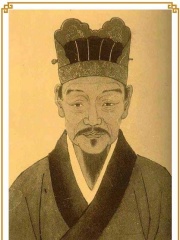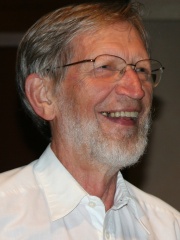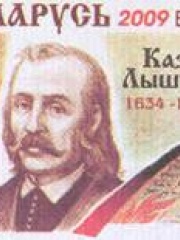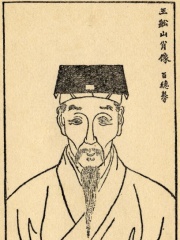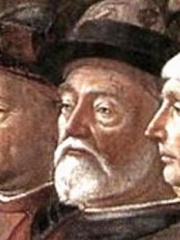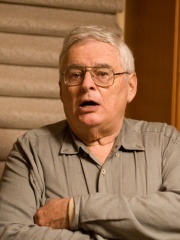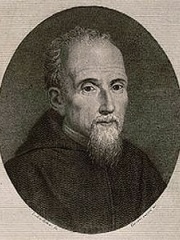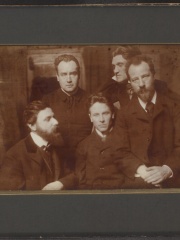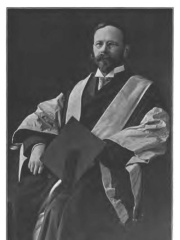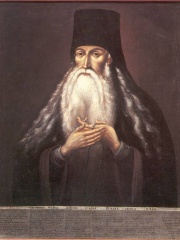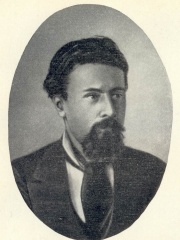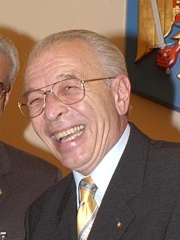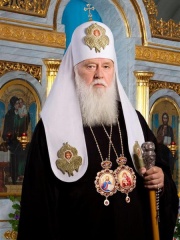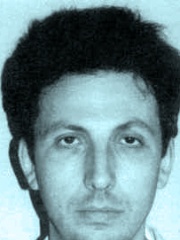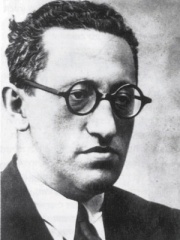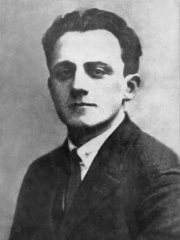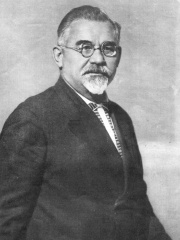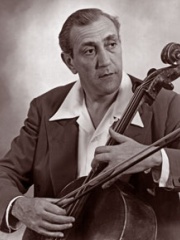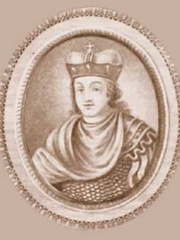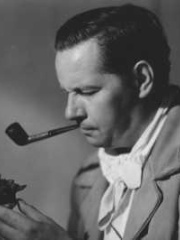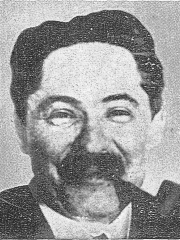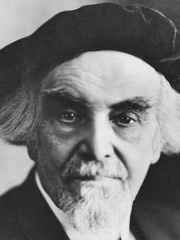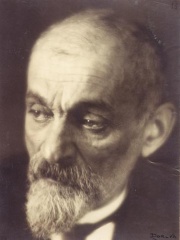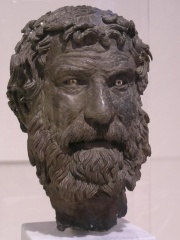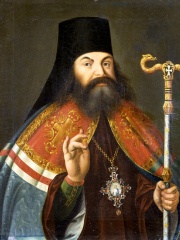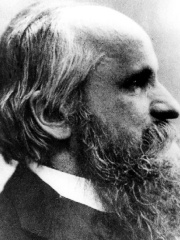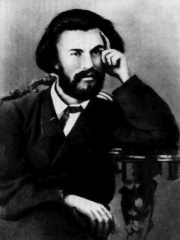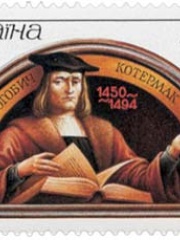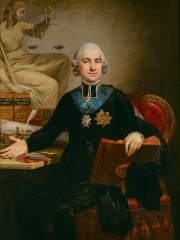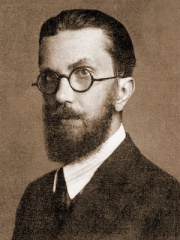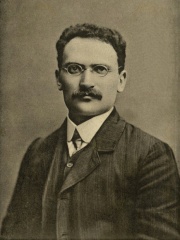Philosopher
Zalmoxis
713 BC - today
EN.WIKIPEDIA PAGE VIEWS (PV)

 Zalmoxis
Zalmoxis
Zalmoxis is a divinity of the Getae and Dacians (a people of the lower Danube), mentioned by Herodotus in his Histories Book IV, 93–96, written before 425 BC. He is said to have been so called from the bear's skin (ζάλμος, zalmos) in which he was clothed as soon as he was born. According to Jordanes' Getica, he was a learned philosopher, before whom two other learned men existed, by the names of Zeuta and Deceneus. Read more on Wikipedia
His biography is available in 21 different languages on Wikipedia. Zalmoxis is the 730th most popular philosopher (down from 684th in 2024), the 308th most popular biography from Ukraine (down from 287th in 2019) and the 6th most popular Ukrainian Philosopher.
Memorability Metrics
Page views of Zalmoxis by language
Among Philosophers
Among philosophers, Zalmoxis ranks 730 out of 1,267. Before him are Li Zhi, Alvin Plantinga, Kazimierz Łyszczyński, Al-Taftazani, Wang Fuzhi, and Julien Benda. After him are John Argyropoulos, Jerry Fodor, Wolfhart Pannenberg, Paolo Sarpi, Ludwig Klages, and F. C. S. Schiller.
Most Popular Philosophers in Wikipedia
Go to all RankingsLi Zhi
1527 - 1602
HPI: 62.89
Rank: 724
Alvin Plantinga
1932 - Present
HPI: 62.87
Rank: 725
Kazimierz Łyszczyński
1634 - 1689
HPI: 62.86
Rank: 726
Al-Taftazani
1322 - 1390
HPI: 62.86
Rank: 727
Wang Fuzhi
1619 - 1692
HPI: 62.86
Rank: 728
Julien Benda
1867 - 1956
HPI: 62.85
Rank: 729
Zalmoxis
713 BC - Present
HPI: 62.84
Rank: 730
John Argyropoulos
1415 - 1487
HPI: 62.83
Rank: 731
Jerry Fodor
1935 - 2017
HPI: 62.81
Rank: 732
Wolfhart Pannenberg
1928 - 2014
HPI: 62.75
Rank: 733
Paolo Sarpi
1552 - 1623
HPI: 62.75
Rank: 734
Ludwig Klages
1872 - 1956
HPI: 62.74
Rank: 735
F. C. S. Schiller
1864 - 1937
HPI: 62.74
Rank: 736
Contemporaries
Among people born in 713 BC, Zalmoxis ranks 1.
Others Born in 713 BC
Go to all RankingsIn Ukraine
Among people born in Ukraine, Zalmoxis ranks 308 out of NaN. Before him are Paisius Velichkovsky (1722), Nikolai Kibalchich (1853), Nicolae Văcăroiu (1943), Filaret (1929), Vladimir Drinfeld (1954), and Haim Arlosoroff (1899). After him are Emanuel Ringelblum (1900), Grigory Petrovsky (1878), Gregor Piatigorsky (1903), Rostislav I of Kiev (1110), Richard Boleslawski (1889), and Dmitry Manuilsky (1883).
Others born in Ukraine
Go to all RankingsPaisius Velichkovsky
RELIGIOUS FIGURE
1722 - 1794
HPI: 62.95
Rank: 302
Nikolai Kibalchich
POLITICIAN
1853 - 1881
HPI: 62.95
Rank: 303
Nicolae Văcăroiu
POLITICIAN
1943 - Present
HPI: 62.94
Rank: 304
Filaret
RELIGIOUS FIGURE
1929 - Present
HPI: 62.93
Rank: 305
Vladimir Drinfeld
MATHEMATICIAN
1954 - Present
HPI: 62.91
Rank: 306
Haim Arlosoroff
SOCIAL ACTIVIST
1899 - 1933
HPI: 62.88
Rank: 307
Zalmoxis
PHILOSOPHER
713 BC - Present
HPI: 62.84
Rank: 308
Emanuel Ringelblum
POLITICIAN
1900 - 1944
HPI: 62.79
Rank: 309
Grigory Petrovsky
POLITICIAN
1878 - 1958
HPI: 62.77
Rank: 310
Gregor Piatigorsky
MUSICIAN
1903 - 1976
HPI: 62.77
Rank: 311
Rostislav I of Kiev
POLITICIAN
1110 - 1167
HPI: 62.77
Rank: 312
Richard Boleslawski
FILM DIRECTOR
1889 - 1937
HPI: 62.73
Rank: 313
Dmitry Manuilsky
POLITICIAN
1883 - 1959
HPI: 62.71
Rank: 314
Among Philosophers In Ukraine
Among philosophers born in Ukraine, Zalmoxis ranks 6. Before him are Nikolai Berdyaev (1874), Lev Shestov (1866), Anacharsis (-700), Bion of Borysthenes (-325), and Theophan Prokopovich (1681). After him are Alexius Meinong (1853), Mykhailo Drahomanov (1841), Yuriy Drohobych (1450), Hugo Kołłątaj (1750), Georges Florovsky (1893), and Ber Borochov (1881).
Nikolai Berdyaev
1874 - 1948
HPI: 72.65
Rank: 1
Lev Shestov
1866 - 1938
HPI: 70.68
Rank: 2
Anacharsis
700 BC - 600 BC
HPI: 70.65
Rank: 3
Bion of Borysthenes
325 BC - 246 BC
HPI: 65.11
Rank: 4
Theophan Prokopovich
1681 - 1736
HPI: 63.36
Rank: 5
Zalmoxis
713 BC - Present
HPI: 62.84
Rank: 6
Alexius Meinong
1853 - 1920
HPI: 62.54
Rank: 7
Mykhailo Drahomanov
1841 - 1895
HPI: 62.01
Rank: 8
Yuriy Drohobych
1450 - 1494
HPI: 60.96
Rank: 9
Hugo Kołłątaj
1750 - 1812
HPI: 60.58
Rank: 10
Georges Florovsky
1893 - 1979
HPI: 60.50
Rank: 11
Ber Borochov
1881 - 1917
HPI: 60.41
Rank: 12
